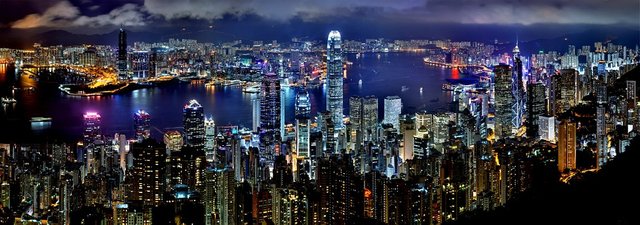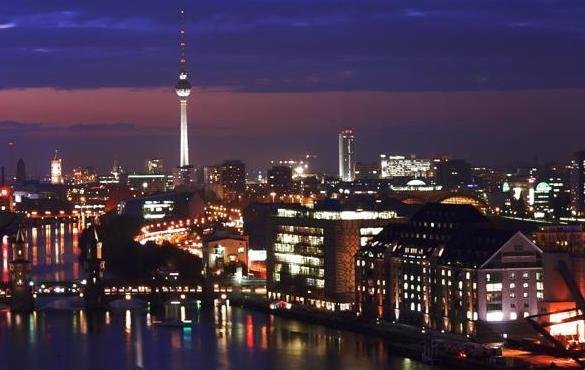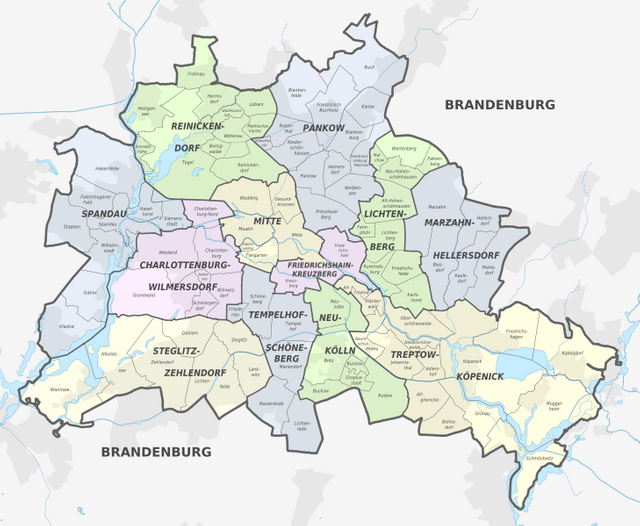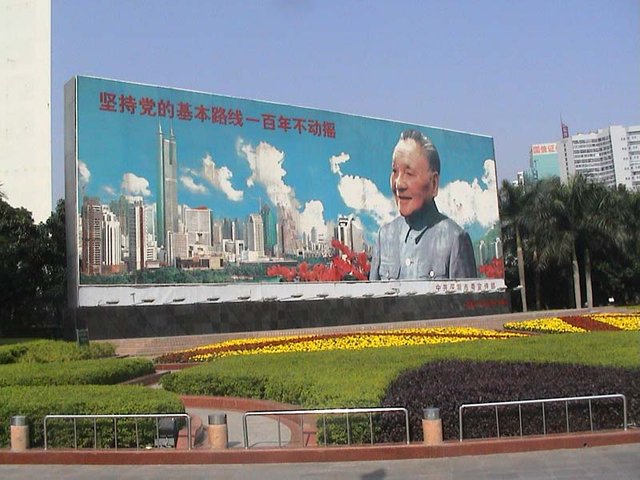How to Make Berlin Rich And Sexy
Berlin has been called "poor but sexy" - and that is not a good label. While the latter is a matter of taste, the former is certainly right. Berlin is indebted by about 60 billion Euros, the third highest rate per capita of all German federal states. Its unemployment rate is 9,7%, the second highest of all German states.
The Fall of the Berlin Wall (source: WikiCommons)
Whereas in most European countries the capital city has a higher level of economic prosperity than the average, the opposite is true for Berlin. Not a single major German company has their headquarters in Berlin. Nowhere in Germany you find so many people who live on the expense of others, either from state benefits or from state jobs such as member of parliament or chancellor.
This is a shame. But what can we do about it?
My suggestion is to create a Special Economic Zone Berlin, which has different laws and a different economic policy than the rest of Germany. We should learn from Hong Kong, a city that has developed from a poor harbour town to an economic powerhouse in just a few decades. The reason: it has the highest level of economic freedom in the world. This means: taxes are low, property rights are well protected and the government does not tamper with the economy.

Hong Kong by night (source: Pixabay)
My Free City of Berlin goes even further than Hong Kong, Singapore or New Zealand. It has no taxes at all, neither for corporations, nor for individuals. Firstly, this has ethical reasons, as taxes are a violation of the basic human right to property. Taxes can be seen as a form of robbery, when taken from someone's belongings under the threat of force. Or they can be considered theft, when added to the prices of goods and services, either as VAT or as one the many other tax forms on tobacco, alcohol, oil, electricity etc.
An economy without taxes would be much more efficient and dynamic. Taxes make goods and services more expensive and lead to a wrong and wasteful allocation of economic activities. How many work hours are wasted just to comply with tax laws and to "save taxes"?
It would especially be much easier for poor people to make a living, as they suffer unproportionally from the high prices caused by indirect taxes on consumer goods. Rich people will always find a way to evade taxes, but poor people have to pay the VAT and other forms of sales tax. So against popular belief, it is good for social justice to abolish taxes.

Berlin by night (source: WikiCommons)
Imagine the boost this would bring to the economy of Berlin: many companies would move their headquarters to the tax-free metropolis. Start-ups and small businesses would thrive, as they do not have to wast precious time and capital to keep their books according to government rules. They could re-invest their income instead of feeding the state bureaucracy. All this would lead to more jobs on all levels, from software developers to cleaning staff.
But how will the government be funded if there are no taxes? Firstly, most of the state's apparatus is obsolete anyway. Nearly all of the services that a government supplies today can be offered much better and cheaper in a competition between private companies.
The only two areas that are probably better served by the state* are security and jurisdiction, if they are democratically controlled and strictly limited by a constitution. So the government should charge fees for these services - not a tax, as a tax does not serve a specific purpose, whereas a fee can only be charged for a precisely defined task.

Berliners like to eat "Currywurst", sausage with curry powder (source: WikiCommons)
These fees do not need to be very high. The budget of Berlin for 2016 is about 25,6 billion Euros, but less than 2 billion of it are dedicated to essential tasks like running the police force and law courts. That means: to keep the same level you would only need to pay a fee that is about 7% of today's average tax load.
As in a tax free society the income of the citizens is not known to the government, the height of this fee depends on something that needs to be registered anyway, which is real estate property. The security and justice fee is paid by the real estate owners, depending on the size and value of their property. This means that real estate owners in upmarket neighbourhoods pay a higher fee than the ones in cheaper areas. Landlords would be able to charge a part of this fee to their tenants, so they pay it indirectly.
This model is similar to what Rick Falkvinge has presented in his three-piece article. The difference: in my model all real estate is private property. The government does not own the land and leases it to citizens and companies, as is Rick's suggestion, but merely charges a fee for its services, based on the property's value. Each of the twelve boroughs of Berlin sets their own fees, so there will be a competition between the boroughs - if the fees are too high in a borough, you could move to the neighbouring one.

The twelve boroughs of Berlin (source: WikiCommons)
But what about social security and welfare? In my opinion, there are much better ways to organise this than by the force of the state: friends' societies, charity foundations, citizens' cooperatives - there are many succesful examples of solidarity in human history. In the Free City of Berlin, there will be all kinds of institutions that would offer a safety net to their members and help people who cannot help themselves. These institutions are funded by its members and run by democratic vote. The more money or voluntary work members contribute, the higher the weight of their vote.
This avoids the harmful effect of a cancer-like welfare state, in which an ever growing part of the population lives on the expense of others, and forces them through majority vote to fund their life. Such a system that punishes productive people and encourages lazy ones to exploit the "commons" will inevitably collapse. By abolishing the welfare state and creating a voluntary system of insurances and charities, everybody will be better off in the long run, also the poor ones.
In my opinion, such a system would be good not only for Berlin, but for the whole of Germany and for all countries. But by creating a Special Economic Zone in one city, we could try it out on a relatively small scale, learn by doing and then grow.

A giant poster of Deng Xiaoping in Shenzhen (source: WikiCommons)
This step-by-step approach was used by Deng Xiaoping, who succeeded to turn the empoverished communist China into the economic superpower it is today. He started this disruptive process against a lot of resistance by his communist colleagues by creating Special Economic Zones in cities like Shenzhen. As they proved to be incredibly successful, he then gradually expanded the concept all over China.
There are surely many things we should not import from China, like the lack of freedom and basic human rights, but Special Economic Zones are a great tool to make an economy harmed by statist interventionism rich and sexy.
* There are ideas how to replace the state monopoly completely, also in security and jurisdiction, such as the ones described by Murray N. Rothbard and Hans-Herrmann Hoppe, but they have not been tested in reality, so let's stick to this model for now.
Heiter post.
Vielen Dank!
Ich kann ein bischen deutsche. Danke!